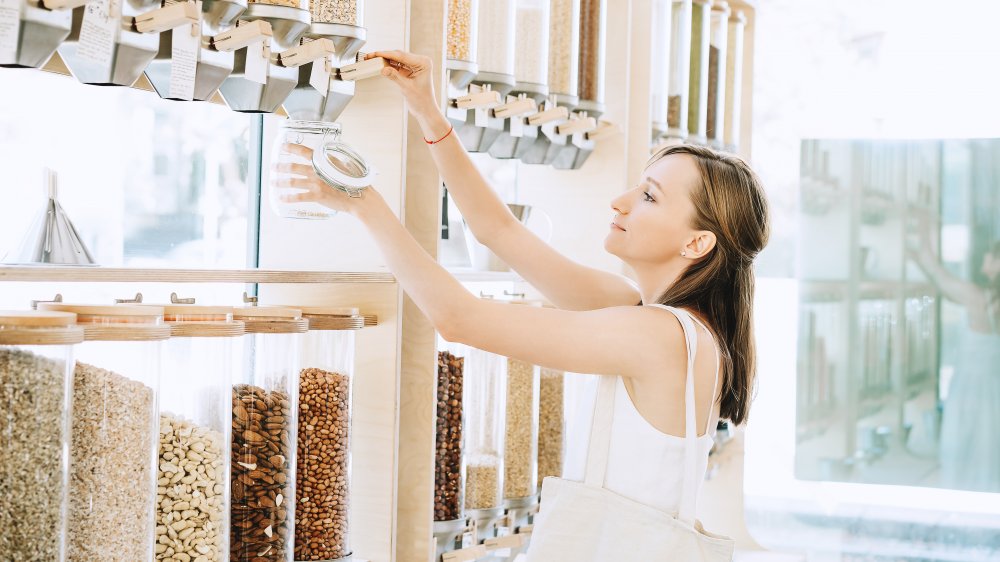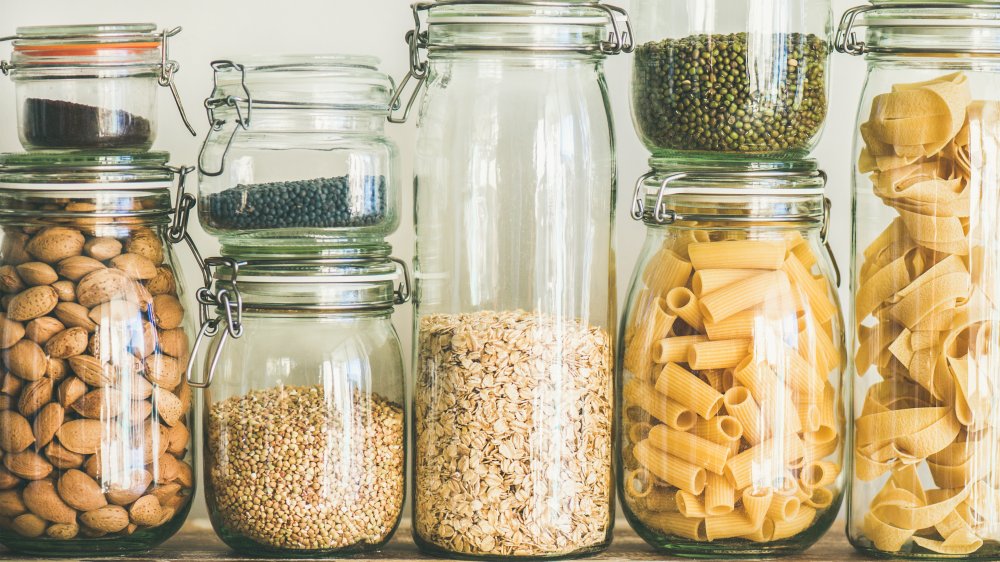You've Been Storing Nuts Wrong. Here's The Right Way To Do It
Think twice before you let your precious cargo of cashews languish on a pantry shelf. Nuts hold up best when kept in the refrigerator. Due to their elevated oil content – thanks to naturally high levels of unsaturated fats – both nuts and seeds are prone to spoilage at room temperature. When exposed to light, heat, and oxygen, the delicate fats can start to break down and turn your treasured macadamias or almonds rancid (via Food 52).
Since nuts are more expensive than other pantry staples, like rice and beans, you may want to take extra care to ensure peak flavor and freshness. By storing your nuts in the fridge, you limit their exposure to factors that can break down fat. Real Simple reports that you can extend the shelf life of nuts to up to two years by keeping them in the fridge or freezer. At a minimum, shelled nuts should stay fresh for a year and those nuts still in their shells will keep one and a half years.
How to store nuts in the fridge
To maximize shelf life, start with the freshest nuts you can find. Food 52 suggests shopping the bulk bins – which tend to have a high turnover rate – and buying only what you need. Real Simple, however, warns shoppers to be wary of bulk nuts. You never know how long they've actually been sitting there, in the open air. Steve Lindsay, the Director of Quality Assurance for Diamond Nuts states that oxygen is the main enemy when it comes to diminished freshness (via Real Simple). Purchasing nuts in a pre-sealed bag may be a better option.
Purchase whole, raw nuts rather than chopped or sliced nuts. Toasting, slicing, and grinding nuts releases their oils – exposing them to dreaded oxygen. No matter how you purchase them, nuts will benefit from being stored in airtight containers (via Food 52).
How do you know if your nuts are bad? Give 'em the old sniff test. eHow says that rancid nuts will smell grassy or paint-like. Though, Livestrong warns against relying solely on your sniffer. Appearance is another cue. Once rancid, nuts may change color: appearing oily and dark (via eHow). Rancid nuts will also taste bad. Live Strong describes a sour, rank flavor. Luckily, eating rancid nuts, while unpleasant, usually doesn't result in harmful side effects (via eHow). To be on the safe – and delicious – side, play it cool and keep your nuts in the fridge.

